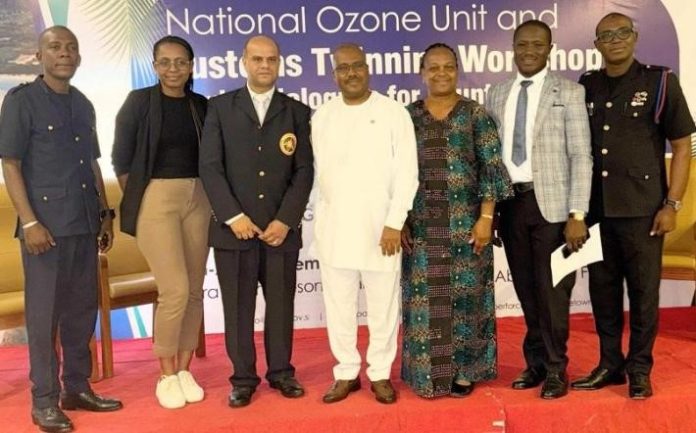AYV News, November 28, 2024
With funding from the United Nations Environment Programme (UNEP), Sierra Leone’s National Ozone Unit hosted a three-day regional workshop on the management and control of ozone-depleting substances (ODS) from November 20–22, 2024.
The event focused on enhancing border management to prevent the illegal entry of ODS into the country and the broader region. In his address, Patrick Salifu, the Anglophone Coordinator for UNEP, emphasized the critical role of border management and compliance in protecting the ozone layer and combating climate change.
He highlighted that the workshop aimed to equip customs officers across the ECOWAS and North Africa regions with the skills to identify ozone-depleting substances. Salifu also noted that the Montreal Protocol, adopted on September 16, 1989, serves as a landmark international treaty designed to phase out the production and use of ODS.
UNEP is collaborating with national ozone units to implement advanced tracking systems for monitoring ODS, establish clear compliance protocols, and provide specialized training for customs officials.
This training includes identifying ODS, understanding regulations, and recognizing relevant documentation related to the import and export of controlled substances. Salifu further stated that UNEP would assess customs organizational structures in Anglophone countries to strengthen legislation and enforcement measures.
Delivering the keynote address, Deputy Minister of Environment and Climate Change Mimi Nima Yeama-Soba Stephens hailed the Montreal Protocol as a “beacon of hope”.
She underscored the importance of collaboration among Anglophone countries, noting that the workshop provides a platform for sharing best practices and fostering partnerships to combat the illegal trade of ODS.
The Deputy Minister expressed optimism that the outcomes of the engagement would empower member countries to protect human health and the environment. John B. Amara, Assistant Commissioner of the Customs Department at the National Revenue Authority (NRA), emphasized the dual responsibility of customs officers: generating revenue for Sierra Leone and protecting the environment.
He highlighted the critical need for customs officers to gain expertise in identifying and preventing the illegal trade of ODS at border points. Amara also acknowledged the strong collaboration between the NRA and the Environment Protection Agency (EPA-SL), reaffirming Sierra Leone’s commitment to environmental protection and climate action.
The workshop represents a significant step toward strengthening regional efforts to combat the illegal trade of ozone-depleting substances and uphold international environmental agreements.

